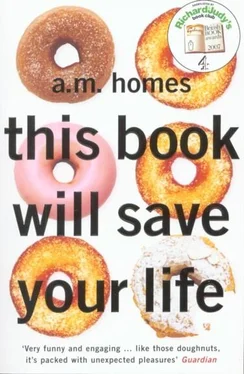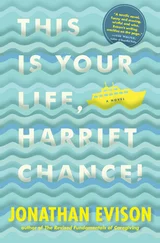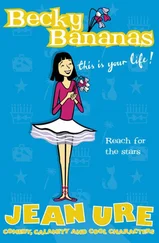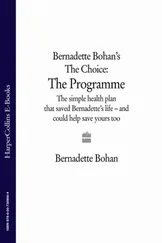Malibu keeps going to the front door — scratching. Richard's not sure if it's because he's missing Ben or he senses something's up.
"That's not our door," Richard tells the dog. "That door goes to the highway; we go out the other door, to the beach. Do you want to go out?"
From the beach, looking back, the sky is glowing yellow, like the end of the world. The air smells like burned toast. Far down the road, at the intersection, he sees mobile news trucks parked, their satellites fully extended. He sees the amusement park at the pier — the Ferris wheel is stopped — everything is stopped. The winds shift, the smoke gets heavier.
He goes back into the house, rummages; on the floor of the closet he finds a gym bag that must have been the mayor's, it's got a red necktie in it, a thing of deodorant, and some glow-in-the-dark condoms — and an emblem on the outside says ROSE BOWL 2002 VIP. He packs a few things in case they have to evacuate: a leash, a plastic bag filled with kibble, chocolate bars, and a change of clothes. He puts the cell phone into the all-weather case Cynthia gave him and slips it into the bag.
Richard goes into Nic's. He opens the file cabinet and takes the manuscript — if he has to go, he's going to take it with him. He's stealing the man's book in an effort to protect it. He puts rubber bands around it in both directions, slips it into a plastic bag. He takes a deep breath — his lungs fill with smoke.
Far up the hill, embers glow like fireflies, waves of fire caress the hillside, flames jump and roll back. The wind shifts, pushing the fire forward.
IT HAPPENS in the middle of the night. At first he thinks a truck went off the road and crashed into the house. A roaring rumble, the walls shake, the floor is like Jell-O, the house shifts. He hears the front door burst open, breaking the frame. He stuffs Nic's novel into his shirt, grabs the bag, runs into the living room. The hill is rolling in; there's the splintering crack of wood giving way, the deep bellowing of walls caving in, rubble crashing through, propelling him out of the house, over the deck, along with everything that was the dining room. Richard is spilled into blackness. He is thinking this is the end, this is it, this is all there is. He is dumped into the ocean, splashing and sputtering. Something is coming towards him, bumping against him — the dining-room table. He grabs it, hoists himself up. Malibu, dog-paddling, scratches his way on board. The table floats. Richard remembers Billy telling him not to put anything hot on the table — it was a prop made for a movie — a prop made of Styrofoam.
He plucks a piece of the wooden deck out of the water, and uses it as a pole to push debris away from his raft.
He remembers Nic telling him, "It's not the wildfires that are going to get you; it's the secret of Malibu — the septic tanks. The hills are filled with leaking septic tanks dumping 'water' into the ground and at some point it's gonna give. It's a river of piss and shit that'll wash us all away," Nic had said. "Malibu is the last of the Wild West: it's every man for himself and then some."
Richard lies on the table, taking a kind of inventory: arms, legs, everything is intact. He lies on the table, rolling with the waves, thinking of the story Joseph told about a man whose house was taken by a flood and he was left floating down his street, which had become a river — on top of a door — and all the man wanted to do was open the door. What did he think he would see, where did he think it would lead? Finally, the man couldn't stand it anymore; he positioned himself on the frame, pulled the knob — the door opened, he fell in and drowned.
Was there some larger meaning — was it a parable, an allegory, or just a story?
He is floating, drifting, and he is breathing and watching his breath and watching the sky. The orange-yellow of the wildfire is giving way to the orange-yellow of dawn. The sun is rising, the air straightening up, pulling tight.
He takes the cell phone out of the weatherproof case and pushes the "power" button. The phone lights up, shows good signal and a decent charge. Richard unzips the mayor's gym bag, opens a condom, rolls it over the phone, and ties it off.
He floats.
There are surfers in the water — tiny and far away. He is out farther than he thought. The ocean, which was so stirred last night, is glassy, calm. He gives the dog breakfast, eats some chocolate, blows air into the Ziploc with Nic's manuscript just in case, and they wait. Richard tells himself not to fight it; for the moment he is safe and should accept what is. The sun is bright on the water, a golden streak; dolphins jump nearby. He is going out to sea.
Just after dawn, his cell phone rings — muffled, distant. He puts the condom phone to his ear. "Hello," he shouts.
"Don't be mad," Ben says. "I told you I couldn't say good-bye."
"Is your mother there?" Richard says.
"She's here."
"How's her leg?"
"It's OK. Are you sure you're not angry?"
"Can you find her for me?"
She picks up the phone. "Richard, I'm on my way out, I have to go and get another damned rabies shot on my way to work."
"Turn on your television."
"I can hardly hear you. What channel?"
"I don't know, try CNN."
"Wow, that's impressive — is that near your house?"
"That is my house."
"Where are you calling from?"
"I'm floating," he says. "I'm out in the middle of the ocean."
"You should try to swim back to shore."
"There's a helicopter coming, it's just above me now, there's a man with a camera — I'm waving. Can you see me? Can anyone see me?"
She is watching him live from New York; he is on the dining-room table, at sea. "Are you OK?" she asks.
"Fantastic, never better," he says, and he's not lying. "I'm just floating, waiting to see what happens next."
A man leans out of the chopper with a megaphone. "Hello down there, can you hear me?"
"YES," he screams.
"We have you in our sights," the man says. "Hold on."
Somewhere deep in the ground below the tectonic plates once again shift. And far in the distance, something catches his eye: Richard watches as the enormous Ferris wheel rolls gracefully off the Santa Monica Pier and into the water.
"We will not forget you," the man says as the chopper banks to the left, pulling away, flying back towards the pier.
"Dad, are you still there?" Ben asks, panicked.
"Yeah, I'm here."
"I can't see you anymore."
"I'm here," he says, "I'll always be here, even when you can't see me, I'm still here."
For their inspiration, good care, and strong advice, the author would like to thank: Tracy Glaser, Amy Hempel, Marc H. Glick, Sara Holloway, Patricia McCormick, Dan Menaker, Anne Philbin, Marie Sanford, Paul Slovak, Cynthia Wornham, Andrew Wylie, Sarah Chalfant, Jin Auh, The Writers Room NYC, Andre Balazs, Philip Pavel and the staff at the Chateau Marmont, the Dorothy and Lewis B. Cullman Center for Scholars and Writers at The New York Public Library, Elaina Richardson, and the Corporation of Yaddo.
A. M. Homes is the author of four novels — In a Country of Mothers, The End of Alice, Music for Torching and Jack — and two collections of short stories, The Safety of Objects and the highly acclaimed Things You Should Know, all published by Granta Books. Granta will also be publishing her memoir The Mistress's Daughter in 2007. She lives in New York City, http://www.amhomesbooks.com/












